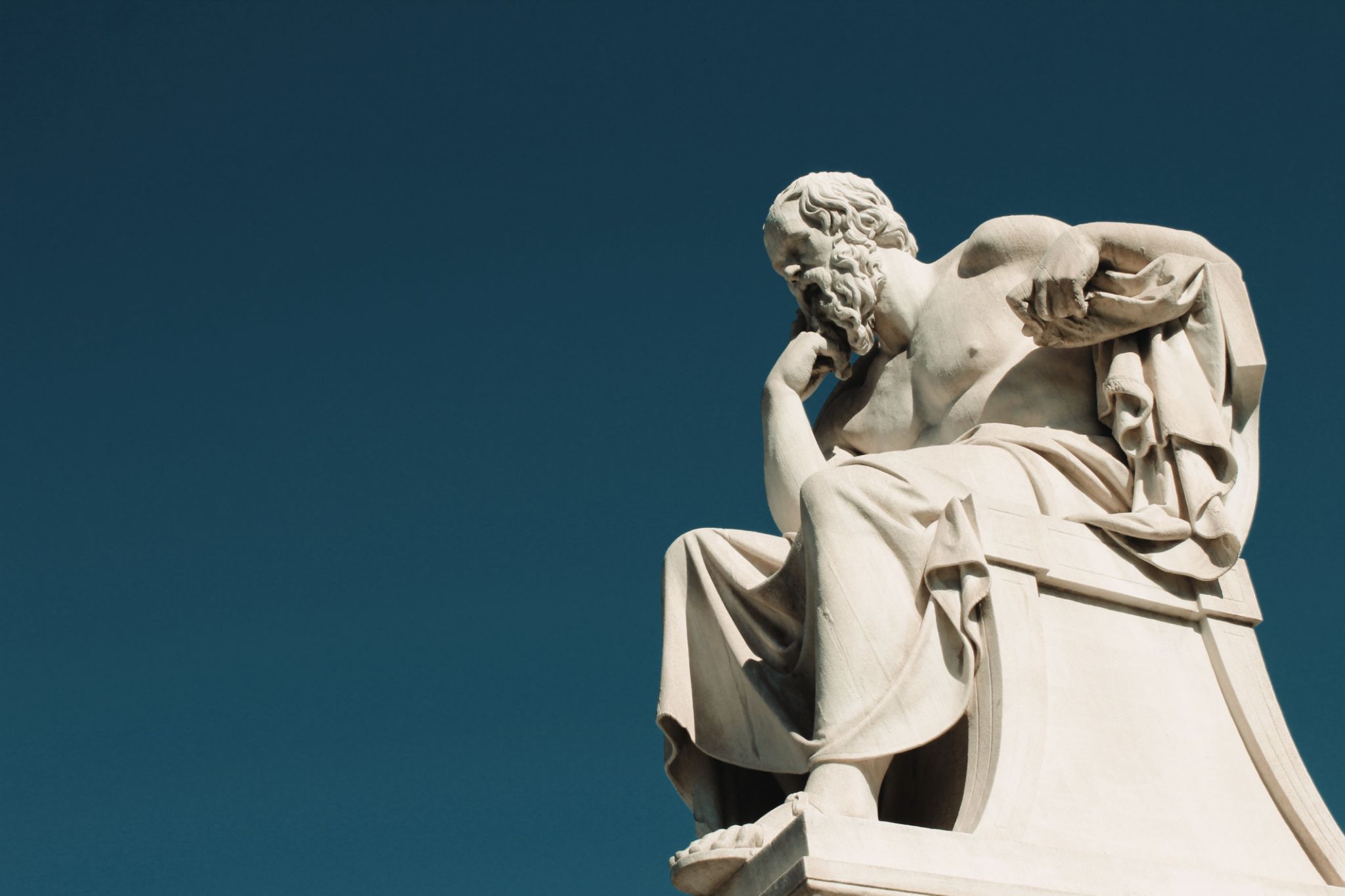A Beginner’s Guide to Western Philosophy: Key Thinkers and Ideas
Introduction to Western Philosophy
Western philosophy is a rich tapestry of ideas and debates that have shaped the way we understand the world and our place within it. From ancient Greece to modern times, this intellectual tradition has been home to some of the most influential thinkers in history. Whether you're a student, a curious reader, or someone looking to broaden your intellectual horizons, understanding the basics of Western philosophy can be a rewarding endeavor.

Ancient Greek Philosophers
Socrates
Socrates is often hailed as the father of Western philosophy. He is best known for his method of questioning, now called the Socratic Method, which involves asking probing questions to stimulate critical thinking and illuminate ideas. Socrates emphasized the importance of ethics and self-knowledge, famously stating, "The unexamined life is not worth living."
Plato
A student of Socrates, Plato founded the Academy in Athens, one of the earliest institutions of higher learning in the Western world. His writings cover a wide range of topics, including justice, politics, and metaphysics. Plato's theory of forms posits that non-material abstract forms represent the most accurate reality.

Aristotle
Aristotle, a student of Plato, made significant contributions to numerous fields such as logic, metaphysics, biology, and ethics. Unlike his teacher, Aristotle emphasized empirical observation and logic. His work laid the groundwork for the scientific method and his ethical theories continue to influence modern thought.
Medieval and Renaissance Philosophy
St. Thomas Aquinas
St. Thomas Aquinas was a medieval philosopher and theologian who integrated Aristotelian philosophy with Christian theology. His magnum opus, *Summa Theologica*, addresses questions about the existence of God, morality, and the nature of man, blending reason and faith in his philosophical approach.

René Descartes
René Descartes is often referred to as the father of modern philosophy. He is best known for his statement "Cogito, ergo sum" ("I think, therefore I am"). Descartes' method of doubt and emphasis on reason as the foundation for knowledge significantly influenced modern scientific and philosophical thought.
The Enlightenment and Beyond
Immanuel Kant
Immanuel Kant was a central figure in modern philosophy who sought to reconcile reason with human experience. His critical philosophy examines the limits of our knowledge and argues that while we cannot know things-in-themselves, we can understand the world through our perceptions and reason.

Friedrich Nietzsche
Friedrich Nietzsche challenged traditional moral values and questioned the foundations of Christianity. His concept of the "will to power" and the idea of "eternal recurrence" have had profound impacts on existentialism and postmodern thought. Nietzsche's provocative style continues to inspire debate and interpretation.
Conclusion
The journey through Western philosophy is both complex and enlightening. From Socrates' search for truth to Nietzsche's challenge of established norms, each philosopher offers unique insights into human existence. By exploring these key thinkers and ideas, beginners can gain a deeper understanding of philosophical inquiries that continue to influence our world today.